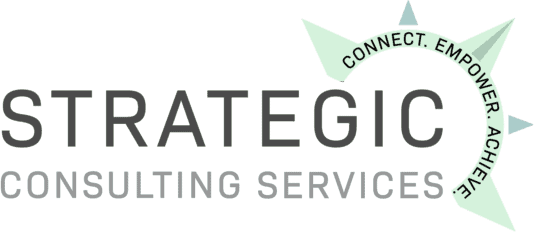Embracing neurodiversity in the workplace is vital in today’s fast-paced, dynamic business environment. Recognizing and valuing the unique perspectives, skills, and talents of neurodivergent employees fosters an inclusive atmosphere that supports innovation, collaboration, and overall success. By celebrating neurodiversity, companies can tap into a diverse talent pool, enriching the workforce and driving growth.
Unlocking the Potential: Benefits of Inclusion for Neurodivergent Employees
Incorporating neurodivergent employees into the workforce offers numerous benefits for both the individuals and the organization. Neurodivergent individuals often bring unique problem-solving abilities, creativity, and specialized skills that can enhance a company’s performance. Moreover, fostering an inclusive work environment signals a commitment to diversity and social responsibility, which can boost employee morale and strengthen the company’s reputation. By valuing neurodiversity, organizations create a positive work culture that empowers all employees to reach their full potential.
Delving into Neurodiversity: Appreciating the Spectrum of Human Cognition
Neurodivergence refers to the natural variations in human cognition, characterized by differences in thinking, learning, and processing information. It recognizes that these variations are not inherently negative but rather represent a spectrum of cognitive abilities that contribute to the diversity of human experience and potential.
Neurodivergent conditions encompass a range of cognitive differences, including autism, ADHD (Attention Deficit Hyperactivity Disorder), dyslexia, and others. While these conditions may present challenges, they also come with their own set of strengths and abilities that can be valuable in various settings, including the workplace.
Neurodivergent employees possess unique strengths, such as heightened creativity, attention to detail, or exceptional problem-solving skills. However, they may also face challenges in areas like social interaction, communication, or executive functioning. It is crucial for employers to understand and appreciate these complexities to create an inclusive and supportive work environment that allows neurodivergent employees to thrive.
Crafting a Neurodiverse-Friendly Environment: Implementing Inclusive Strategies
To build a neurodiverse-friendly workplace, companies should reevaluate their recruitment and hiring practices. This may involve offering multiple application formats, providing clear and concise job descriptions, and implementing interviews that minimize bias. By adopting inclusive hiring practices, employers can better identify and attract neurodivergent talent.
Employers should also consider providing reasonable accommodations and adjustments to create a supportive work environment for neurodivergent employees. These may include flexible work hours, assistive technology, modified workspaces, or additional training. By offering tailored accommodations, companies can ensure neurodivergent employees have the necessary support to succeed in their roles.
Promoting understanding and awareness of neurodiversity among employees is crucial for fostering an inclusive workplace. This can be achieved through workshops, seminars, or training programs that educate employees about neurodivergence and its implications. By raising awareness, employers can help create a supportive and empathetic work culture where all employees feel valued and respected.
Encouraging open communication and feedback is essential for creating an inclusive environment for neurodivergent employees. Employers should facilitate channels for honest conversations about individual needs, concerns, and experiences. By promoting dialogue, companies can better understand the unique perspectives of neurodivergent employees and adapt their strategies to support their growth and success.
Sustaining a Neurodiverse-Friendly Future in the Workplace
Fostering an inclusive workplace for neurodivergent employees has long-term, far-reaching benefits. By valuing and leveraging the unique skills and perspectives of neurodivergent individuals, companies can drive innovation, enhance problem-solving, and foster a more collaborative work culture. In addition, cultivating an inclusive environment attracts top talent, improves employee retention, and bolsters the organization’s reputation as an industry leader in diversity and inclusion.
Creating an inclusive work environment is an ongoing process that requires a continuous commitment from employers and employees alike. By prioritizing inclusivity and adapting strategies to support the evolving needs of neurodivergent employees, companies can ensure a thriving work environment for all. In doing so, they will not only empower neurodivergent individuals but also contribute to building a more inclusive, diverse, and successful future for the entire workforce.
Strategic Consulting is Your Partner in Managing Workplace ADA Issues
Our team is here to help with your disability accommodation issues, vocational rehabilitation needs, ergonomic evaluations, and other employee needs.
For twenty years, we have been helping companies in the Pacific Northwest with worker injuries, disabilities, and other vocational challenges. We are here to support you in this unprecedented era of remote working and WFH.
We have partnered and provided solutions to some of the largest companies in the world (such as Boeing, Microsoft, and Amazon). But, at our core, we are still “people taking care of people,” one project at a time. Our success is built upon and providing you the best solution to your workplace challenge. Contact us today by filling out a form (below), submitting a referral, or visiting our ‘Contact Us‘ page to find your nearest office.
Ric has been working in the industry since 2002, specializing in developing employer jobsite analysis and light duty programs, ergonomics consultations and adjustments, disability accommodations and providing effective return to work solutions. Ric is Matheson trained in Ergonomics and is a Certified Ergonomics Evaluation Specialist. He earned a Bachelor of Arts Degree in Psychology from Western Washington University and later his Master’s Degree, M.Ed., Education Counseling from Seattle Pacific University. Ric is currently a Registered Vocational Rehabilitation Counselor for the Department of Labor and Industries and has been a Certified Disability Manager Specialist since 2006.

